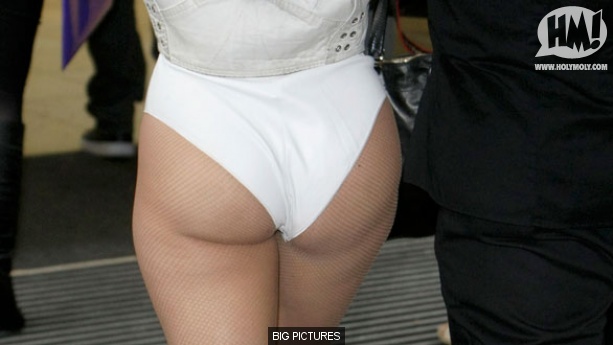 Before you can rescue victims of trafficking you have to find them. Everyone likes to talk about the cowboy raids in which police storm a brothel and arrest/rescue everyone. But less exciting procedures are necessary, as described below in an abbreviated version of guidelines included in a 2008 UN report, Identifying Cambodian Victims of Human Trafficking Among Deportees from Thailand.
Before you can rescue victims of trafficking you have to find them. Everyone likes to talk about the cowboy raids in which police storm a brothel and arrest/rescue everyone. But less exciting procedures are necessary, as described below in an abbreviated version of guidelines included in a 2008 UN report, Identifying Cambodian Victims of Human Trafficking Among Deportees from Thailand.
Note the use of profiling, according to which looking like a prostitute gets you an interview. Lady Gaga, Madonna and many other women are said to look like prostitutes, on and off – it is a grand sexist tradition. Therefore I am not sure how far such stereotyping will get those trying to distinguish the real victims from the ordinary, everyday migrants. The profiling also names a type called women who act out. This psychotherapeutic (or psychobabble) term means something like
expressing unconscious feelings and fantasies in behaviour; reacting to present situations as if they were the original situation that gave rise to the feelings and fantasies.
Women who are not submissive, docile and quiet, then. Many readers of this blog, and its writer, are undoubtedly women who act out – at least I hope so.
Victim Identification Procedures
. . . It is clear from the research findings that . . . many victims of human trafficking and exploitation have been treated and identified as irregular migrants and deported.
. . . An interview at the Immigration Detention Center (IDC) in Suan Plu, Bangkok revealed that approximately 200-500 individuals arrive per day for deportation, from countries including Cambodia and Myanmar. After processing, which includes fingerprinting, photos, and general background information, approximately 10-20 of them are selected to be screened for human trafficking victim identification. Whether or not a person is selected to be screened is determined by certain profiling cues such as: women whose dress suggests that they were prostitutes, men with lashes on their back, women who act out, or children who do not look like their mothers or fathers, such as with different skin tone.
The IDC police officer on duty at the time of the survey reported that no one had ever self-identified as a trafficking victim. The IDC officer also believed that many deportees do not expose the full truth of their experiences or exploitation during these initial screenings. It was alleged that deportees fear that being identified as a trafficking victim would delay their trip home. This view has been echoed by the Cambodian NGOs who work with deportees.
The police who do the screening try to help bring out the truth by showing the deportees a video about human trafficking that was developed by IOM, with complete screenings including a second form used by NGOs and IDC officers. Changes in the trafficking law have resulted in both men and women being screened; detainees who are identified as victims are sent to a shelter, while those detainees who are not identified are deported within a two-day turnaround.
–Laura Agustín, the Naked Anthropologist

“The IDC police officer on duty at the time of the survey reported that no one had ever self-identified as a trafficking victim.”
But obviously, we can’t believe THAT because it contradicts our theory.
“Women who are not submissive, docile and quiet, then. Many readers of this blog, and its writer, are undoubtedly women who act out – at least I hope so.”
For this reader, “act up” is probably a closer description. :D
what a difference a preposition makes, eh? but actually, maybe the women are only acting, no preposition required.
Actually an adverb or particle (or verbal satellite in Leonard Talmy’s nomenclature), but I am certainly in awe of the power of those little English words to completely change the meaning of the words around them.
Laura, I’m curious. You’ve had yourself experiences with true trafficking victims. Would you be able to give these people advice about how actually to find them? (I assume in most cases true trafficking victims are not going to contact the authorities, out of fear for the consequences or even sheer ignorance.)
by looking for the true victims amongst migrants being deported the cops are not entirely wrong, but probably such victims have no motivation to be found out – they won’t get to stay except in a shelter and they might not want the sort of counselling they will get, not to mention the pressure to denounce a trafficker.
most trafficked people don’t look different from anyone else, which is why i am harsh about the profiling. in the situation described the police can’t do anything else, however. i am more interested in promoting skepticism, strength of character, self-reliance and research skills amongst people who want to migrate and will need the services of a smuggler.
this is a good story: https://www.lauraagustin.com/sex-trafficking-victims-help-themselves-to-escape-thais-in-spain
“detainees who are identified as victims are sent to a shelter, while those detainees who are not identified are deported within a two-day turnaround.”
Reward people for lying, and they’re going to lie. I’d make up a bogeyman too if it spare me legal consequences. When you’re arrested you’re at the police’s mercy; it’s only logical to try to appease them and it’s no secret they love the story of oh-help-I-have-a-bad-man-making-me-do-this.
Pingback: Deludenti i progetti sociali per i/le sexworkers – di Laura Agustin – Al di là del Buco